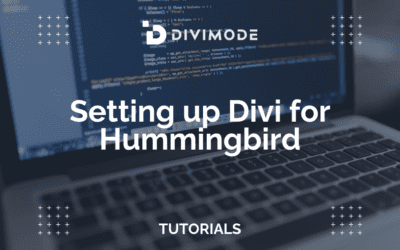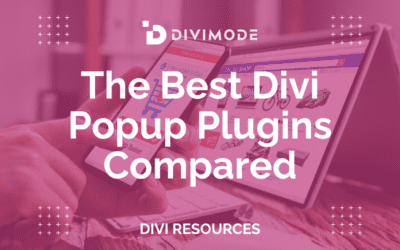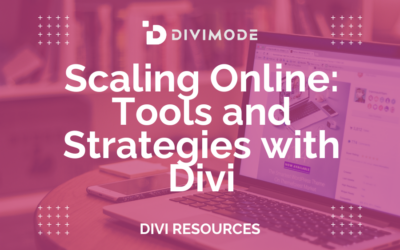When it comes to creating a website, one of the most important decisions you will make is choosing the right page builder, and two of the most popular options available are the Divi Builder and Elementor.
While both are powerful and feature-rich website builders, they each have their own set of strengths and potential weaknesses.
Thus, in this article, we will compare both and help you make an informed decision on whether Elementor is better than the Divi Builder or vice versa.
Table of Contents
- Elementor vs. Divi: Brief Introduction
- What Are Elementor’s Best Features?
- What Are the Divi Builder’s Main Features?
- Elementor vs. Divi Builder: the Pros and Cons
- Is Elementor Better Than the Divi Builder?
Elementor vs. Divi: Brief Introduction
Elementor is a popular drag-and-drop website builder plugin for WordPress. It allows users to create custom website designs without needing to know how to code.
With Elementor, users can choose from a variety of pre-made templates or create their own designs using a simple and intuitive interface. The plugin offers a wide range of widgets, modules, and templates that can be easily customized to match the design needs of the user.
Elementor is known for its fast and responsive performance, and it has become a popular choice for many WordPress users and web designers who are looking for an easy way to create professional-looking websites.
The Divi Builder is a drag-and-drop website builder plugin for WordPress developed by Elegant Themes. It allows users to create custom website designs without needing to know how to code.
The plugin offers a variety of modules and widgets that can be easily customized to match the design needs of the user. With the Divi Builder, users can choose from a library of pre-made templates or create their own designs using a visual interface.
The plugin includes a real-time design preview, which allows users to see their changes in real-time as they make them.
The Divi Builder is known for its flexibility and ease of use, and it has become a popular choice for many WordPress users and web designers who are looking for an intuitive and powerful website builder.
What Are Elementor’s Best Features?
As one of the most popular WordPress page builders, Elementor offers a wide range of features and capabilities for creating and customizing websites.
The following are just some of the best features that Elementor can provide you with.
- Live editing: Allows you to see changes made to your website in real-time as you make them, making it easier to design and customize your pages.
- Templates: Offers a wide range of pre-designed templates and blocks that can be used to create pages quickly and easily.
- Widgets: Includes a large collection of widgets, such as buttons, forms, sliders, and more, that can be used to add functionality to your pages.
- Theme Builder: Allows you to customize the header, footer, and other parts of your theme.
- WooCommerce Integration: Elementor has its own set of widgets for WooCommerce and also allows you to create custom product pages.
- Responsive Design: Allows you to create pages that look great on all devices and screen sizes.
- Global widgets: Allows you to create widgets that can be reused on multiple pages, making it easier to maintain consistency throughout your website.
- Dynamic Content: Allows you to create dynamic pages that change based on user interactions or data from your website.
- Popup Builder: Create custom popups to promote your products or services.
- Custom CSS: Allows you to add custom CSS code to specific parts of your website.
These are some of the main features of Elementor, but of course, the builder also boasts many other significant features that enable you to create professional-looking and high-functioning websites.
What Are the Divi Builder’s Main Features?
Our beloved Divi Builder offers a wide range of powerful features and capabilities to customize your Divi website.
Some of the main features of the Divi Builder include:
- Visual Editor: Divi’s visual Editor allows you to design and customize your Divi pages using a drag-and-drop interface.
- Templates: Offers a wide range of pre-designed templates and libraries of layouts that can be used to create pages quickly and easily.
- Modules: Includes a large collection of modules, such as text, images, forms, and more, that can be used to add functionalities to your Divi pages.
- Theme Builder: Allows you to customize the header, footer, and other parts of your theme.
- WooCommerce Integration: Divi Builder has its own set of WooCommerce modules for WooCommerce and also allows you to create custom product pages.
- Responsive Design: Allows you to create pages that look great on all devices and screen sizes.
- Global Modules: Allows you to create elements that can be reused on multiple pages, making it easier to maintain consistency throughout your Divi website.
- Custom CSS: Allows you to add custom CSS code to specific parts of your website.
- Split Testing: Allows you to test different versions of Divi pages to see which one performs better.
- Role Editor: Allows you to control what modules and options are available to different WordPress user roles.
- Undo/Redo: Allows you to undo and redo changes made to your Divi website in case of an error or change of mind.
- Save and Manage Layouts: Allows you to save and manage different layouts for later use.
These are some of the main features of the Divi Builder, but it also has many other powerful features that allow you to create professional-looking and highly-scalable WordPress websites.
Elementor vs. Divi Builder: the Pros and Cons
Obviously, there are a lot of similarities between the Elementor and Divi Builder.
They’re both extremely powerful in allowing you to create stunning websites, and both of them have a ton of templates and plugins to choose from, so you can customize your site according to your preferences.
Moreover, both teams and communities are pretty strong, offering excellent support and customer service 24/7/365 for you. The Divi Builder also has strong customer service, and users can even opt for one-on-one sessions with experts if they need help.
So, how do you decide which builder is better for you? That really depends on the needs and preferences for your website project.
Here’s a rundown of the pros and cons of each builder:
ELEMENTOR PROS:
–Flexibility: With Elementor, you have total control over your page layout. You can change everything from the font size to the placement of individual elements. This level of customization is not possible with Divi.
–Plugins and Add-Ons: With its array of plugins and add-ons, Elementor gives you excellent options for customizing and upgrading your WordPress website. You can make your pages even more unique and personal with elements like sliders, tabs, and accordions.
–Affordability: While Divi is certainly not cheap, Elementor is generally cheaper than its rival builder. You can get started with Elementor for just $59 per year (compared to the $89for Divi).
DIVI BUILDER PROS:
–Powerful Simplicity: The Divi Builder is definitely easier to use than Elementor, especially for beginners. The interface is cleaner and less cluttered, making it easier to find the Module that you’re looking for in the builder. It also provides helpful hints and tips as you build your page, so you don’t have to guess at what each element does.
–More Pre-Made Templates: The Divi Theme and Builder offer a ton of pre-made templates that you can use as an excellent starting point for your own designs. If you’re not an experienced builder, this can be a huge time saver!
–Full Customizability: You can easily change colors, fonts, backgrounds and more with a few clicks. The Builder also provides you with a library of pre-made pages that are fully customizable.
Is Elementor Better Than the Divi Builder?
It is a matter of personal preference and the specific needs of the user. As you can see, both Elementor and Divi are strong and versatile WordPress page builders with their own set of unique features and capabilities.
Even though we don’t have the perfect verdict, some users may find Elementor to be more user-friendly and easier to use, while others may prefer the advanced design options and usability offered by Divi.
Divi, on the other hand, Divi is considered to have more advanced design options and better support for WooCommerce.
It’s best to try both and see which one works better for you!

Try Divi Areas Pro today
Sounds interesting? Learn more about Divi Areas Pro and download your copy now!
Many pre-designed layouts. Automated triggers. No coding.
Click here for more details






